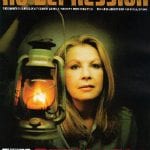Evil
Fans who have seen the Handsome Family in concert know that Rennie Sparks can spin a twisted tale. In Evil, a self-published collection of 13 disturbing short stories, Sparks revisits many of the same themes she explores as a lyricist and stage performer.
All but one story is told from a female protagonist’s point of view, and Sparks is particularly adept at depicting the mentality of a long-suffering, downtrodden wife. “Fire” concerns a defeated woman who must endure the verbal assault of her brutish husband as they drive around their crowded urban neighborhood, searching for a parking space. The results of their quest are humorous and haunting.
Several stories, such as “Skanks” and “Dirtbags”, feature teenage narrators who live in a grim world infested with rednecks, drug and alcohol abuse, trips to the strip mall, and journeys to the backwoods for misogynist sex. Although Sparks does a fine job re-creating the teens’ vernacular and hopelessness, this is literary territory that has been traversed in a more compelling fashion by numerous writers.
Some text seems to have been included merely for its shock value. The young narrator of “Swimming Lessons” enjoys being urinated upon by her brother. “Stuffed” begins as follows: “I told my best friend Lisa to jump off the top of the refrigerator when she got pregnant. But, she didn’t jump right and ended up having to sell all her gold necklaces to get her insides scraped out.”
These tales often end abruptly, without the sense of resolution found in traditional short stories. And ironically, despite all the references to booze and bodily fluids, Sparks’ finest works are her most conventional. “Cranes” is a well-wrought account of an elderly couple’s routine and suffocating existence. “A Song About Sausage” is a masterful illustration of a lonely woman whose life unravels when she is diagnosed with breast cancer. Her burgeoning obsession with a neighbor who grows tomatoes leads to a moment of profound compassion.
Not all the stories succeed, but those that do contain unforgettable moments. A professional editor could have tightened up the prose, eliminated sporadic typographical errors, and perhaps suggested a broader range of tone. But that editor may have also eliminated some of the most startling passages in favor of more conservative artistry.




